WHERE ARE THE DAYS OF "ASKING THE VILLAGE ELDER TO GO FISHING"...
Standing at Vung Bot - the confluence of the two rivers Nam and Bac before flowing into Nam O estuary, Mr. Truong Van Do (residing in Ta Lang village) drew a circle with his hand and said that since ancient times, this is the area with the most nien fish (lien fish) in the Cu De river system. For the Co Tu people, this fish species that only lives in cold rivers and streams is a sacred product that Giàng (heaven), mother nature, bestowed upon them. No Co Tu boy grows up without knowing about the nien fish hunting sessions to improve family meals. No village does not use nien fish as a precious dish during festivals and offerings... The Co Tu people are grateful to this fish species because it is a part of their cultural tradition.
"We call the fish "a siu hur lieng". When I was young, I often followed my father to the stream to hunt fish. The tool we often used was a gun with a sharp arrow attached. To catch fish, in addition to being good at diving, the fisherman also had to practice his underwater shooting skills, because this fish swims very fast", Do said. However, about 15 years ago, he did not go hunting, but when he did, he always brought back a few kilos of fish. "Now the fish are still there, but catching large fish is not easy... Many years ago, electric shock and dynamite fishing caused schools of fish, both mother and baby, to die without food", Do said sadly.
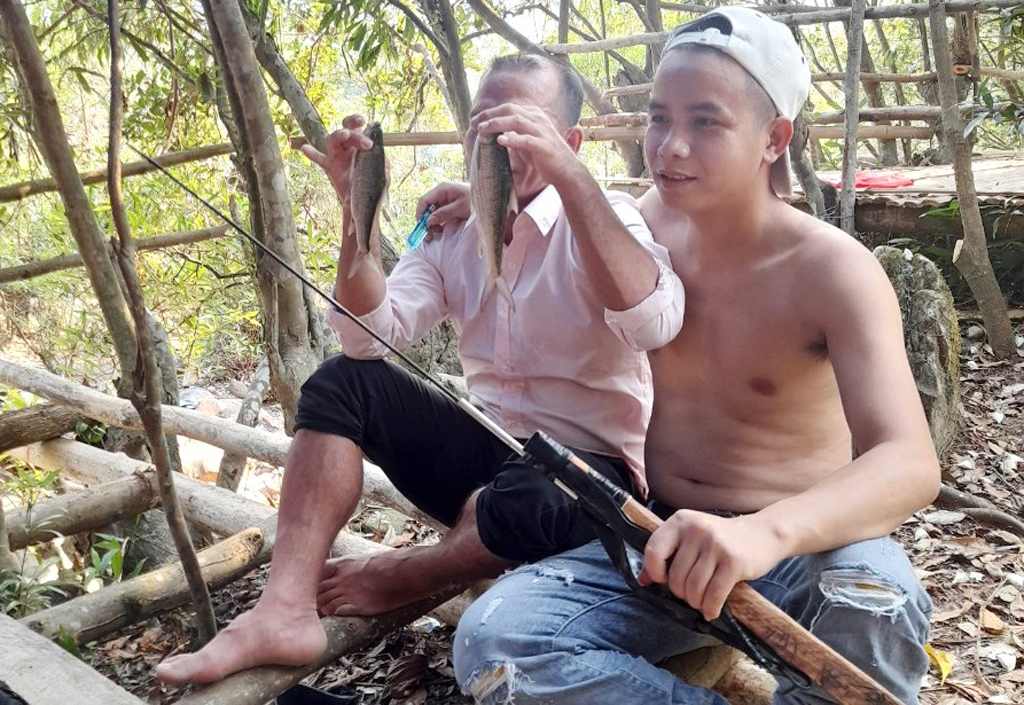
The Co Tu youth both preserve and selectively hunt fish.
Mr. Dinh Van Nhu, Party Secretary of Gian Bi village, also expressed regret when mentioning this fish species. According to him, before people from the city brought destructive tools to exploit it, fish swam in schools on the Nam and Bac rivers all year round. "Back then, in addition to shooting with homemade arrow guns, we caught fish by chiseling the mouths of bamboo tubes so that large fish could not swim back out when they entered. The fish schools thrived on the river thanks to strict village rules. Any family that had a party or wedding had to ask the village elder to go to the river to catch fish. The village elder told them which section of the river they wanted to catch, and they did exactly that. If they caught more, the village would fine them!", Mr. Nhu said.
Traffic and roads are becoming more convenient, fish from the Hoa Bac mountains are increasingly "going down" to the city. The fish meat is delicious so the price is high. So there was a time when people from the lowlands came up to catch fish in large numbers. One day, Mr. Nhu was stunned when he witnessed people electrocuting fish, causing the fish to float white in the river. "They picked up all the big and small fish, not leaving a single one behind...", Mr. Nhu said sadly.
KEEP THE FISH, KEEP THE CULTURAL SOURCE
In the culinary culture of the Co Tu, the fish is indispensable on important occasions. It is a dish that the people consider a specialty to treat distinguished guests as a pride of the family, village... Therefore, facing the risk of extinction, when hearing that the local government was coordinating with the Global Environment Facility (GEF) to implement a program to protect and restore this fish species, the Co Tu boys who are familiar with every tide and every cliff volunteered to participate. "2 years ago, the Core Group for Protecting the Fish of the Hoa Bac Commune Community Tourism Cooperative was established with 15 members, residing in the two villages of Ta Lang and Gian Bi. Our mission is to protect the fish from threats of destructive exploitation, protect water resources...", Mr. Phan Van Thu, Head of the Farmers' Association of Ta Lang Village, Head of the Core Group for Protecting the Fish, shared.
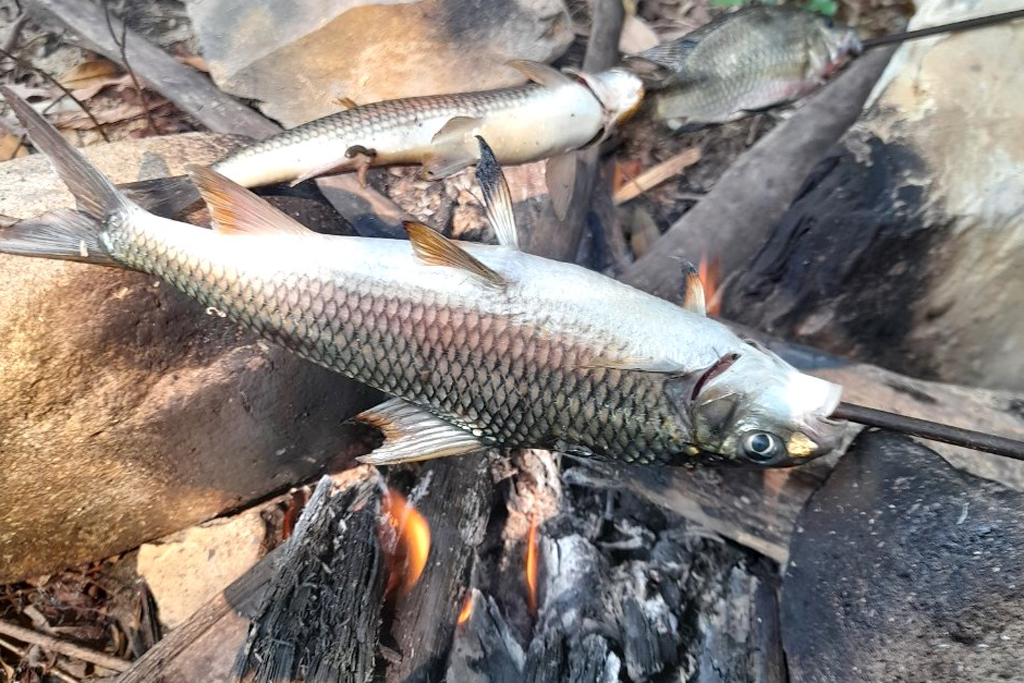
Grilled fish of the Co Tu people makes many people fascinated
Mr. Truong Van Dao, a member of the group, added that on the day of the launch, the group received fishing equipment including diving goggles, a fish basket and an arrow gun. The members of the group also pledged not to use destructive fishing methods. Every day, the group is allowed to hunt fish in areas that are not prohibited. They are also only allowed to fish outside the breeding season (around the 3rd - 5th lunar months). With this hunting method, each day, a good diver can only catch 5 - 6 fish, enough to serve a group of a few tourists .
"The traditional way of fishing cannot catch small fish, but only fish from 3 fingers or more (weighing about 300 grams) so it is selective. After 2 years, the mother fish have increased. Every time we visit the river and see the fish returning, we are very happy. With the price of 400,000 - 500,000 VND/kg, the fish protection team also has extra income thanks to the diners who love it every time they visit Hoa Bac. We also coordinate with the trekking team to lead guests to experience the natural life. Anyone who is interested will be guided to dive and shoot fish and then grill them on the riverbank or stream bank, which is extremely interesting...", Mr. Dao shared.
However, the rising price of anchovies also has a downside. During patrols, members of the team discovered many people intentionally using electric shock. "From the team's reports, many people have been fined up to 5 million VND by the police. When we tried to stop them, we were also threatened with beatings and death, but we were not afraid. For generations, anchovies have been associated with the Hoa Bac mountains and forests, and with the Co Tu culture. Preserving anchovies means preserving the source of life, preserving the source of culture...", Mr. Phan Van Thu asserted. (to be continued)
Warning of new destructive hunting "tricks"
Mr. Dinh Van Nhu said that currently, on the river sections where hunting of young fish is not banned in the upper Cu De River, many professional divers have appeared in the sea. "They carry air tanks and can dive deep, diving into every cave and stream for hours. Then when they come up to the surface, they catch a lot of big fish. I think that is also a new way of destructive hunting because if we don't stop it, the male and female fish will no longer exist...", Mr. Nhu worried.
Source link


![[Photo] Funeral of former President Tran Duc Luong in Quang Ngai](https://vphoto.vietnam.vn/thumb/1200x675/vietnam/resource/IMAGE/2025/5/25/ccf19a3d8ea7450bb9afe81731b80995)
![[Photo] The coffin of former President Tran Duc Luong arrives in Quang Ngai](https://vphoto.vietnam.vn/thumb/1200x675/vietnam/resource/IMAGE/2025/5/25/1f1aca0d92ab47deae07934e749b35e6)
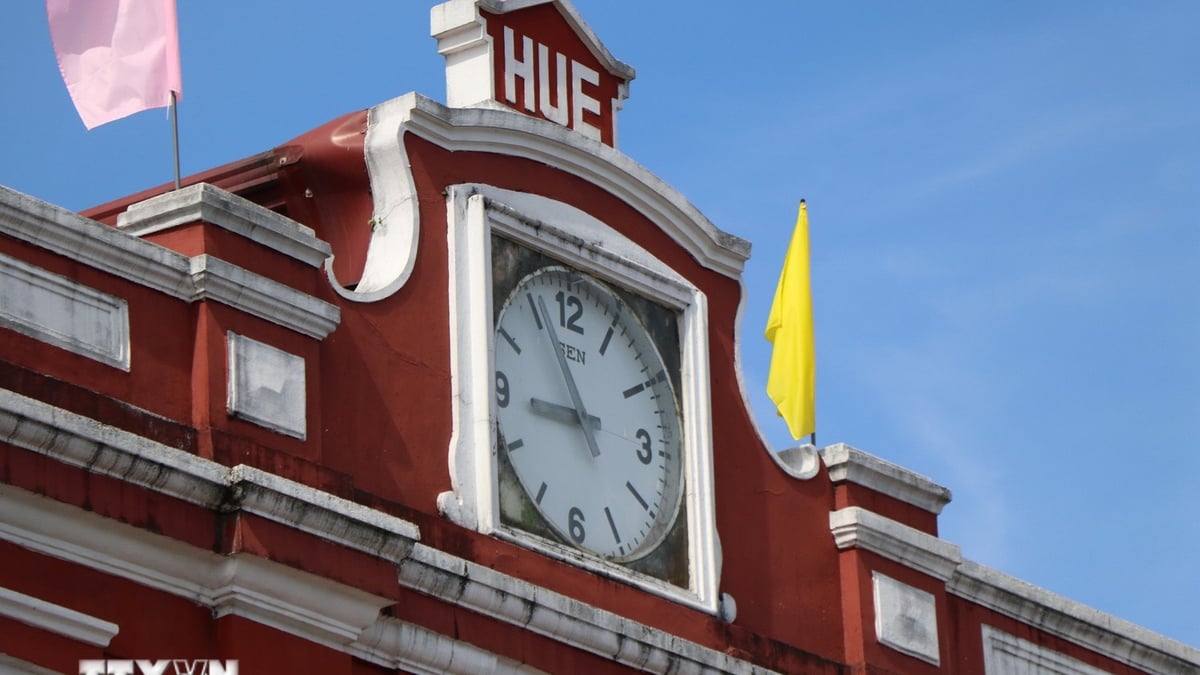
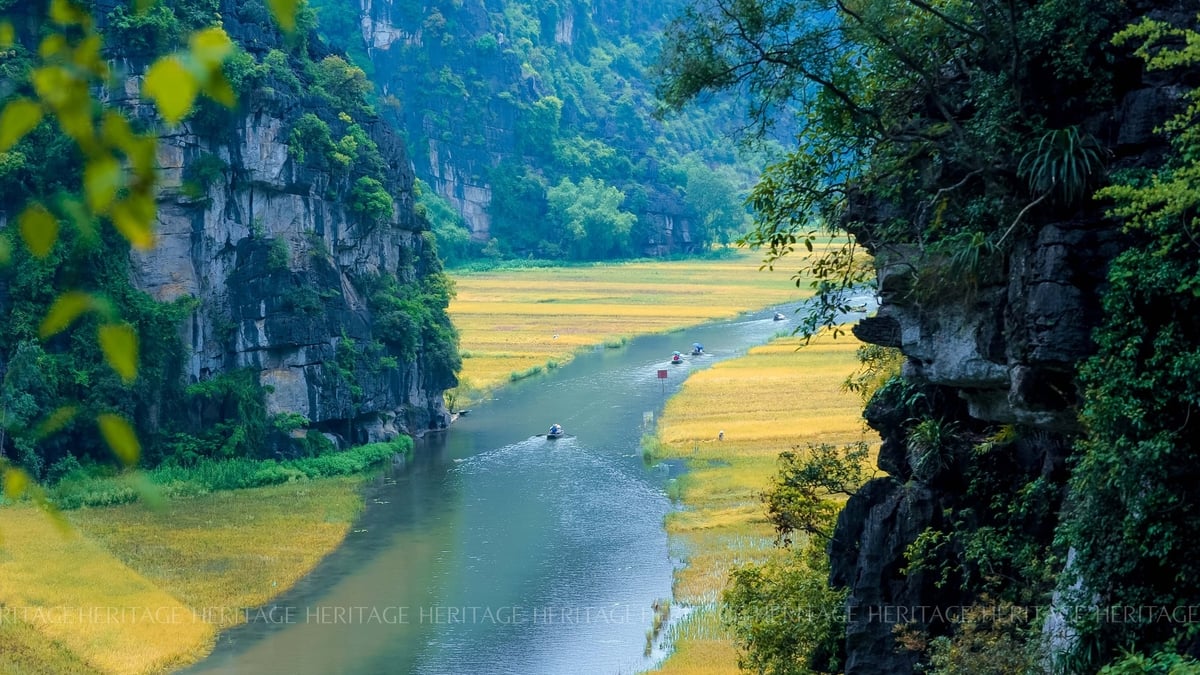

![[Photo] Welcoming ceremony for Prime Minister Pham Minh Chinh and his wife on an official visit to Malaysia](https://vphoto.vietnam.vn/thumb/1200x675/vietnam/resource/IMAGE/2025/5/25/dc30203c3ae24da3990266ec3b29bb2d)


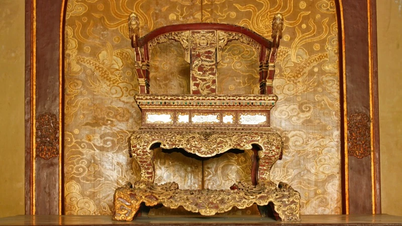





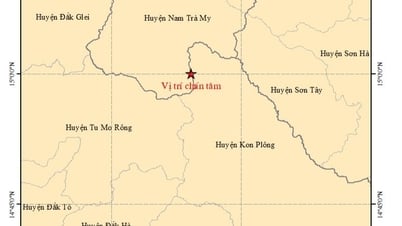
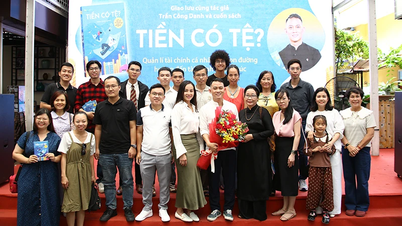





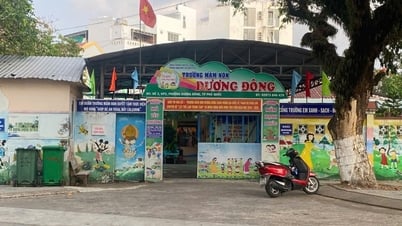
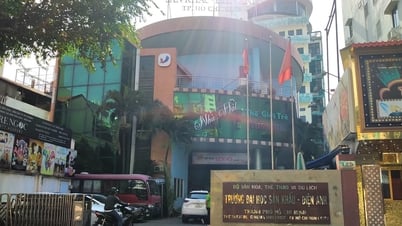





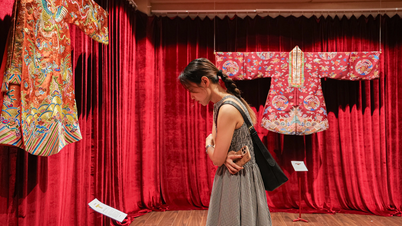








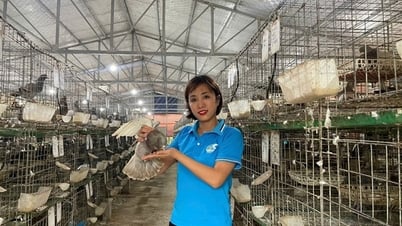


















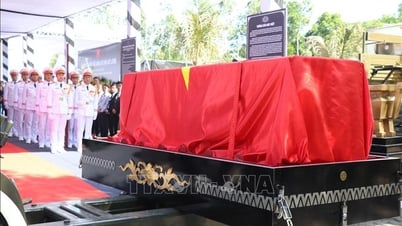










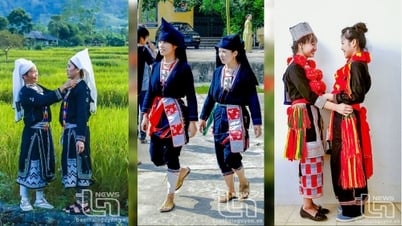



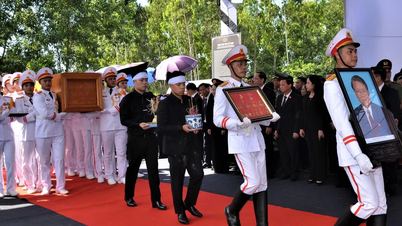


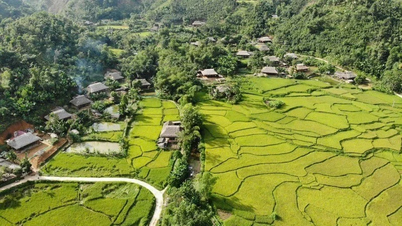
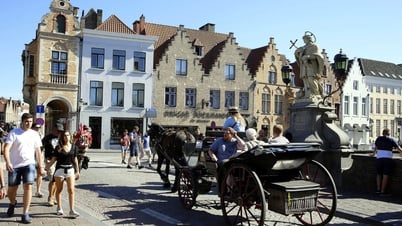

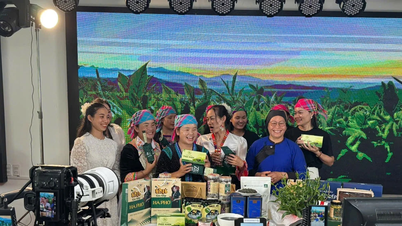






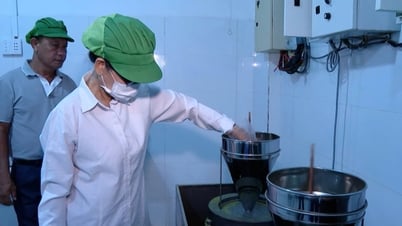

Comment (0)